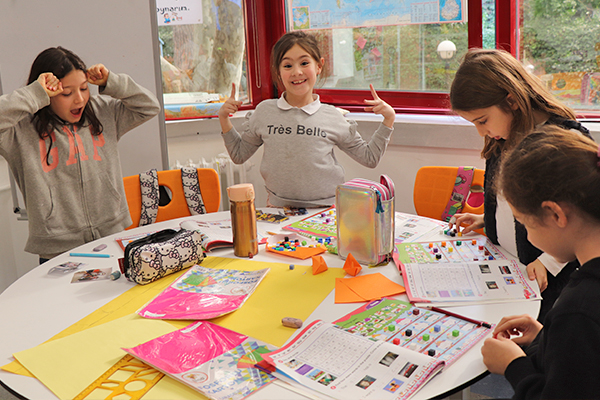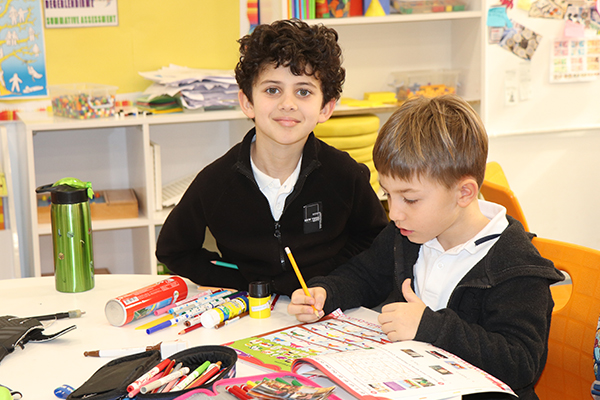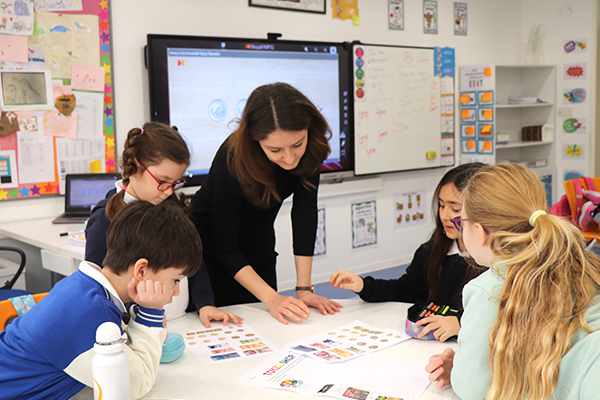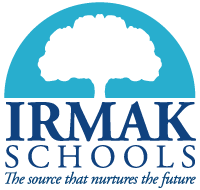SOCIAL STUDIES

Social Studies lessons are taught by a Turkish homeroom teacher and a native English teacher in English in Grade 2.
Students do activities for the development of their IB learner profiles such as thinking, communicating, knowing, and risk-taking with the program prepared in line with the PYP Curriculum frame based on MEB Social Studies outcomes. Inquiry units are formed in connection with transdisciplinary PYP Themes in order to complete the Ministry of National Education outcomes at every grade level until the end of academic year. It is very important for the children at this age to get to know themselves as individuals in the first place and then, gain environmental and public consciousness, adopting from near to far and from known to unknown inquiring principles.
Information is associated with the life, which are learned receiving supports from such persons and institutions as travels, specialists, nongovernmental organizations in order for the units taught within the frame of inquiry to be examined by the students with tangible data. Students are directed to deliberatively develop and employ their inquiring skills, thinking skills, social skills, communication skills, self-management skills in order to reach the information. Students are guided in following visual and written media in relation with their age levels, interests, wonders and subjects as well. Following positive attitudes are intended to be developed by the students in the activities organized in individual and group studies; such as being respectful, creative, establishing empathy, cooperation, adopting national and international values. It is our main target to educate students to be individuals who express themselves, have developed self-confidence and social sensitivity. You can examine details of the themes, concepts and contents accentuated at the grade levels from inquiry program.
TURKISH

Turkish language lessons are taught in a spiral structure at every grade level in line with the scope and sequence comprising listening, reading, understanding, writing and visual reading and presentation subtopics. It is planned in accordance with PASS theories and their steps (Planning, Attention, Simultaneous, and Successive). Differentiated contents are prepared taking into consideration the differences of students with PASS Theory activities during Thinking Skills course hours. Our aim is to enrich their vocabulary causing them to develop reading habits and then ensure that they can use language in an effective way. Students are encouraged to develop their oral expression and written expression in Turkish lessons. They are encouraged to ask questions about their observations, what they heard and listened, their feelings and thoughts. They are supported to prepare their works as a visual presentation in order for them to be individuals expressing themselves in front of the people. As in the case of every course, it is intended that they can solve problems, express their feelings and thoughts independently, and make decisions and implement with the group activities carried out in this course as well. Books are examined in details in the academic year, which are acquired in connection with inquiry units or for the purposes of free reading.
MATHEMATICS

Scope and sequence activities are carried out, which are configured in line with PYP subtopics and general expectations as well as MEB curriculum. PYP is performed with stand alone plans configured, which shape, space, numbers data processing and pattern subjects out of subtopics are prepared being based on inquiry. It is our major objective that they should read, write two digit numbers and recognize digit and number value. Skills in four mathematical operations regarding two digit numbers are developed. Activities using visual materials forms a basis while developing skills in four math operations.
Aim is enabling students to understand the logic of the techniques instead of memorizing the way operations are performed. One of the important skills acquired by the students is assessment skill. Estimation and comparing such estimation with actual results is frequently employed in our classes. In this way, their competence to make estimations close to the reality and establish connection with the actual life are developed. Students are encouraged not only to be able to solve mathematical problems but also problems encountered in daily life.


